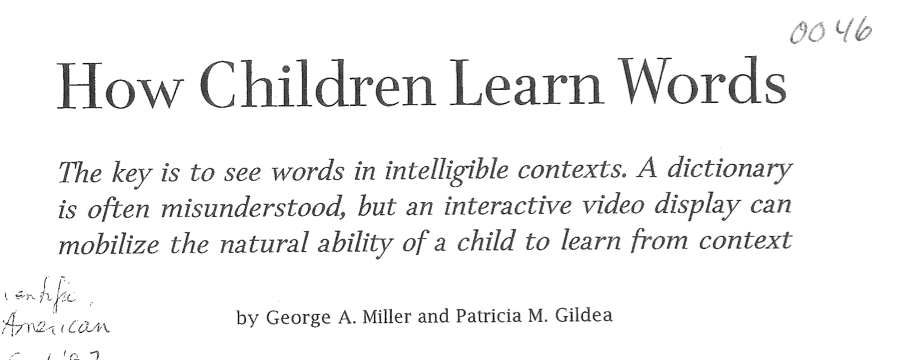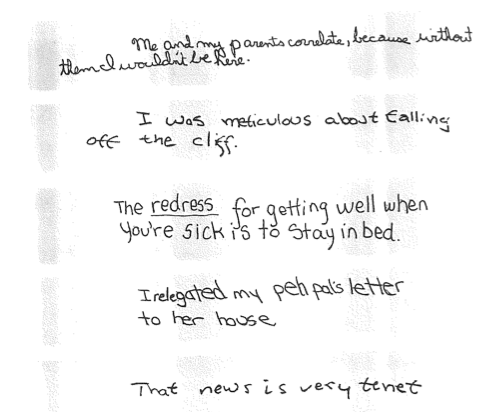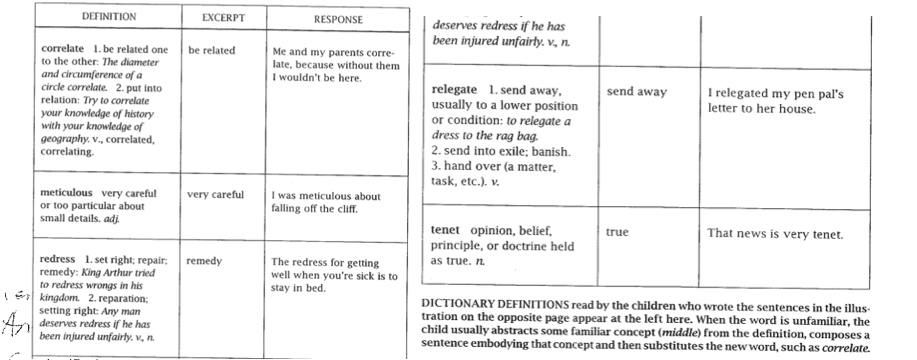
What are key words?
In the ReadingWise comprehension resource, The Master is our quirky guide (he's the one at the bottom right of your poster). Here is his introduction to the key words mini-skill:

"Often, as we are reading, some words just jump out at us. Sometimes they are unusual, sometimes interesting and sometimes just brand new to us. But always, they make us think. Do not ignore them! A classic mistake."
Why key words?
Working with key words is vital in comprehending a text. Readers need strategies to identify which words are key – that is to say, which words will unlock meaning. Skimming and scanning are such strategies. They all involve self-monitoring.
As The Master outlines above, words might be key for a variety of reasons:
- unfamiliar
- unusual
- interesting
- critical to meaning.
In the first blog of this series we explored the text below. Let's revisit - have a scan; which key words emerge for you?
Illya Prigogine has demonstrated that when an ‘open system’, one which exchanges matter and / or energy with its environment, has reached a state of maximum entropy, its molecules are in a state of equilibrium. Spontaneously small fluctuations can increase in amplitude, bringing the system into a ‘far from equilibrium’ state. Perhaps it is the instability of sub-atomic particles (events) on the microscopic level that causes fluctuations on the macroscopic level of molecules.
The word entropy and the phrase 'open systems' are likely to stick out as key words to many of us. If, as strong readers, we don’t fully understand them, we recognise their importance to the comprehension of this text.
Notice the strategy you apply when you encounter the above words. Chances are you make a ‘mental note’ that the words are both unknown (or not fully understood) and important. If you were serious about understanding the above, you’d likely plan to revisit those words and make sure they are understood.
How to teach key words in the classroom

There are lots of ways to do this, but here is a simple model. Select a text similar to the example above. If you are working with your whole class, selecting a text that is likely to have unknown vocabulary, even among the stronger readers (including yourself?), is essential.
Display the text on a board for all the class to see, distribute a copy to each learner, or have them work in pairs. Then go through the following steps:
- Ask students to read the text once through, pens down.
- Ask students to re-read the text, circling one word that is a 'key word'.
- Elicit key words from your class, write them up on the board.
- Discuss what makes these words 'key words' - how did they select them? (Unfamiliar? Interesting? Critical to meaning? Unusual?).
- Discuss appropriate next steps (dictionary work? ask someone? use context clues?).
A word on research - and the danger of dictionaries
It is quite natural to assume that when readers encounter unfamiliar words, dictionaries are the place to go. This is (often) fine for good readers, but for struggling readers the evidence is against this practice. This can feel counter-intuitive, but words are best learnt in intelligible contexts.

Take a look at the sentences written by students, below. They used dictionaries to look these words up (see definitions, also below).
These come from an excellent, short and very entertaining piece of research called How Children Learn Words by George Miller and Patricia Gildea. Well worth a read!


What do you think?
What is your experience of teaching key words? Are they something you've used in your classroom? Let us know your thoughts below.
The ReadingWise Demo
And finally - if you'd like to explore using ReadingWise to empower your struggling comprehenders, you might like to arrange a demo with our friendly team. Demos are quick, informative and fit with your schedule. So far we've reached many thousands of learners and would love to explore working with you if it might help more children read.









